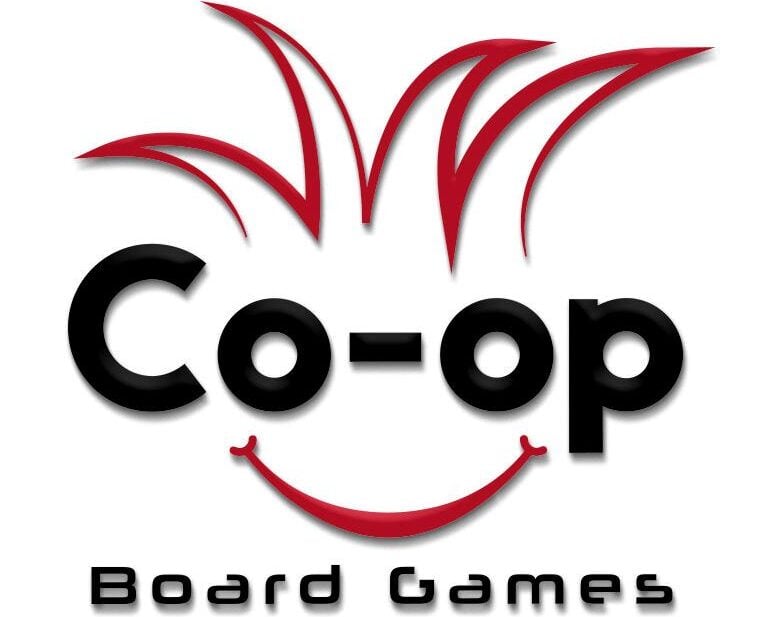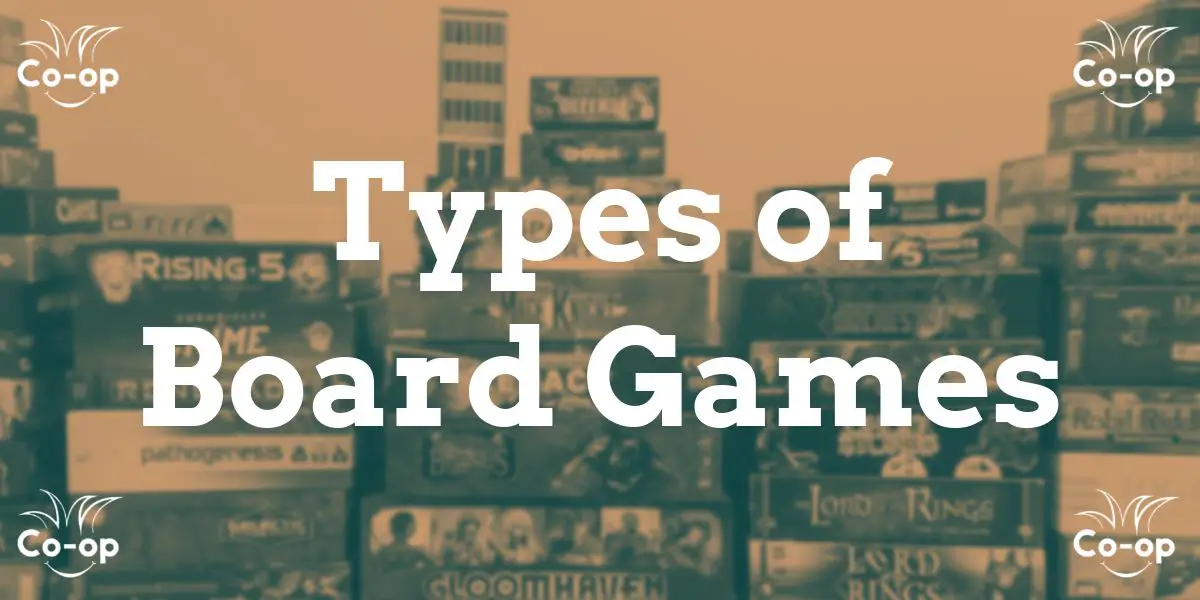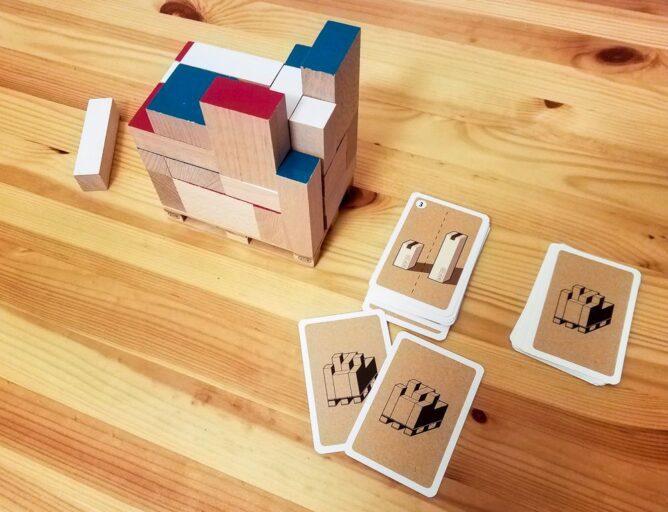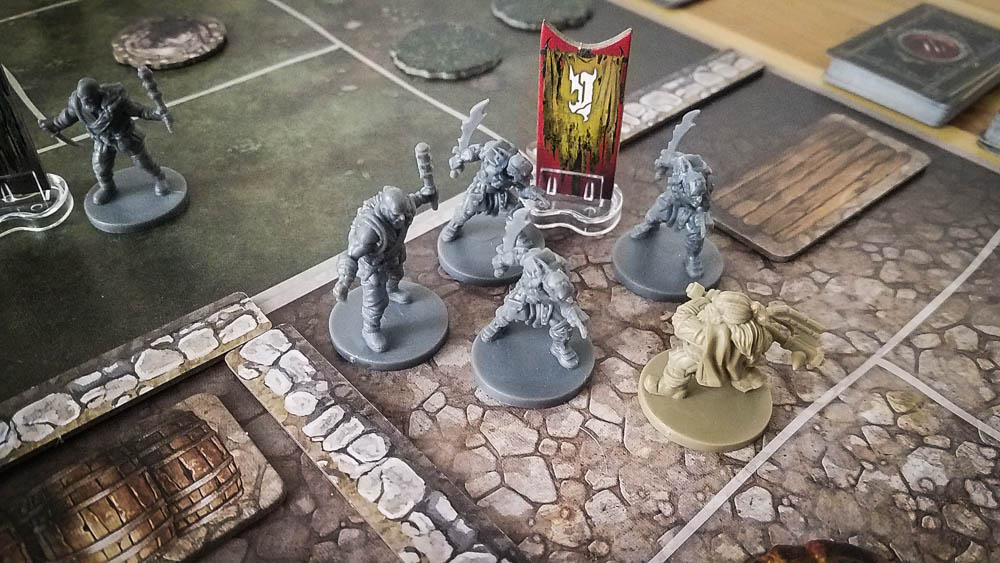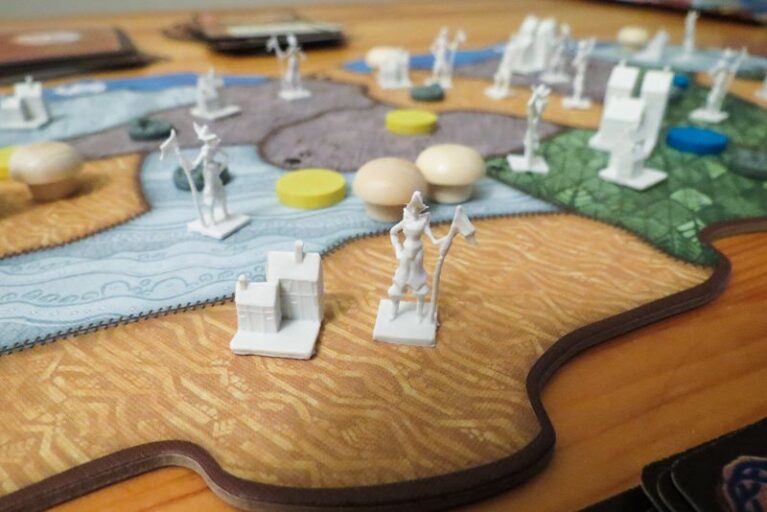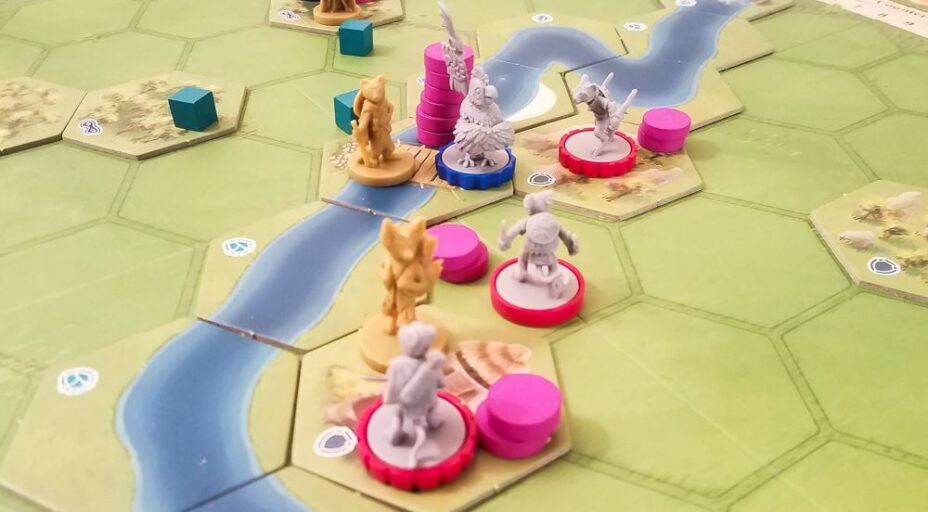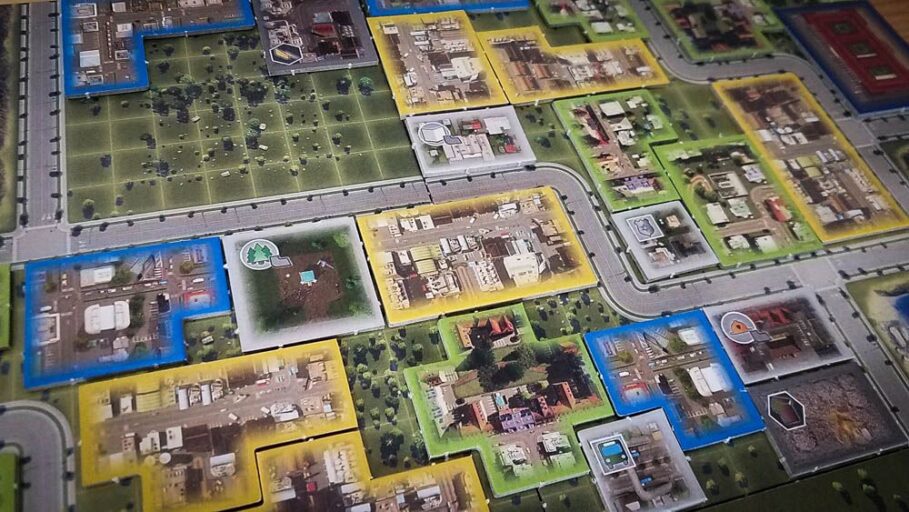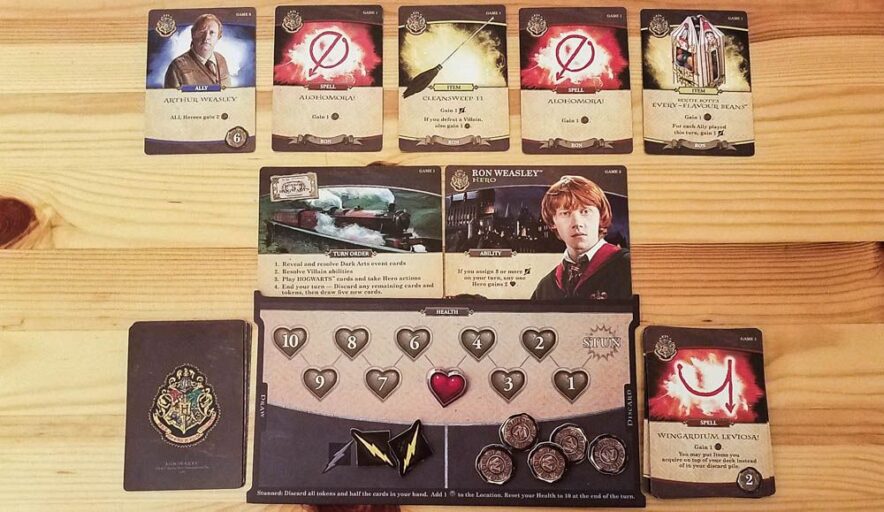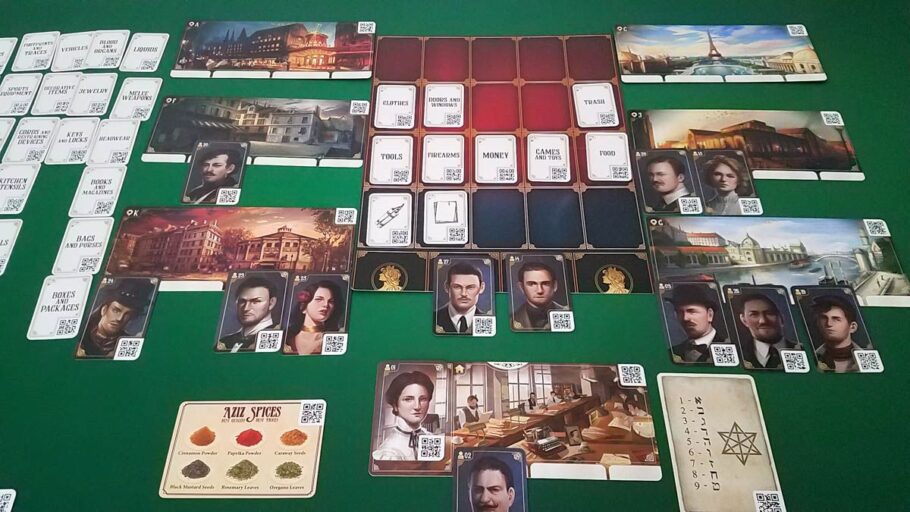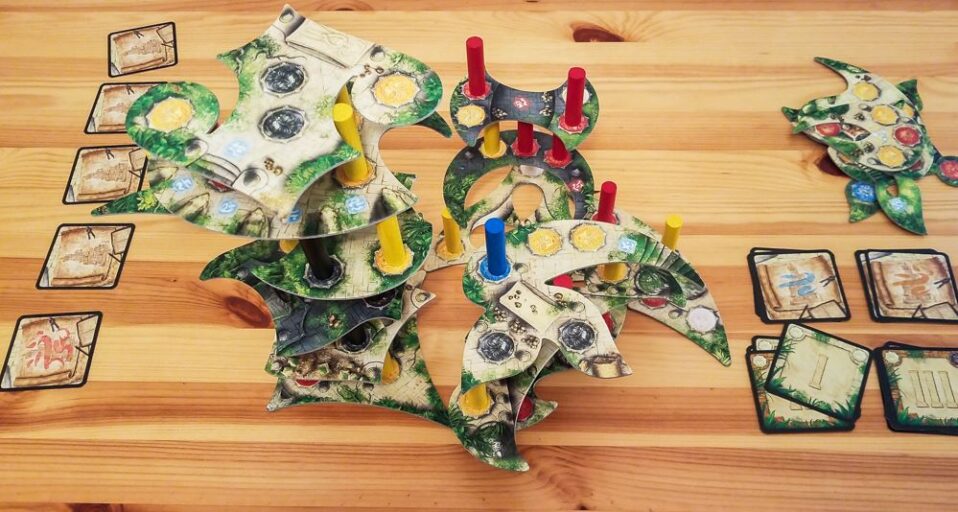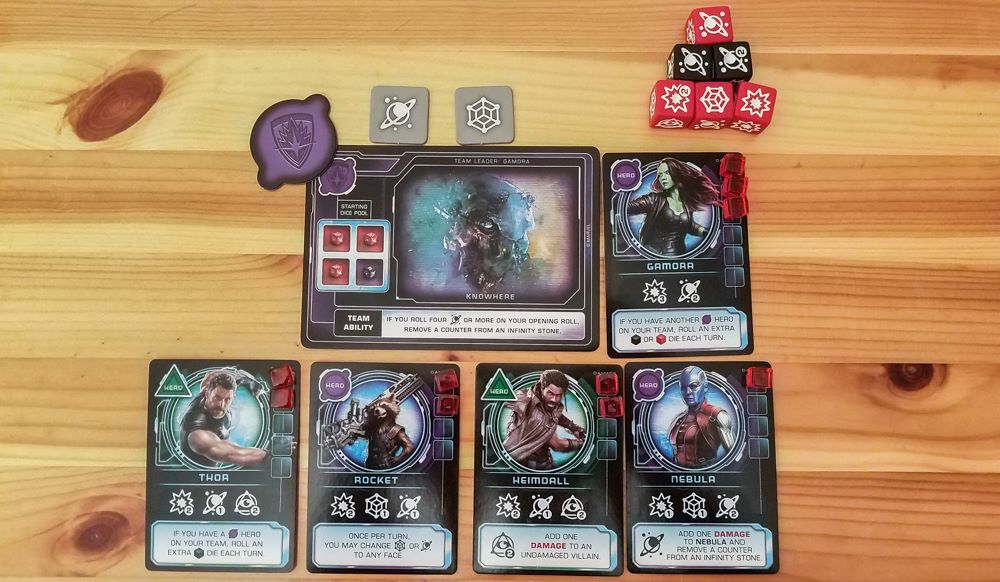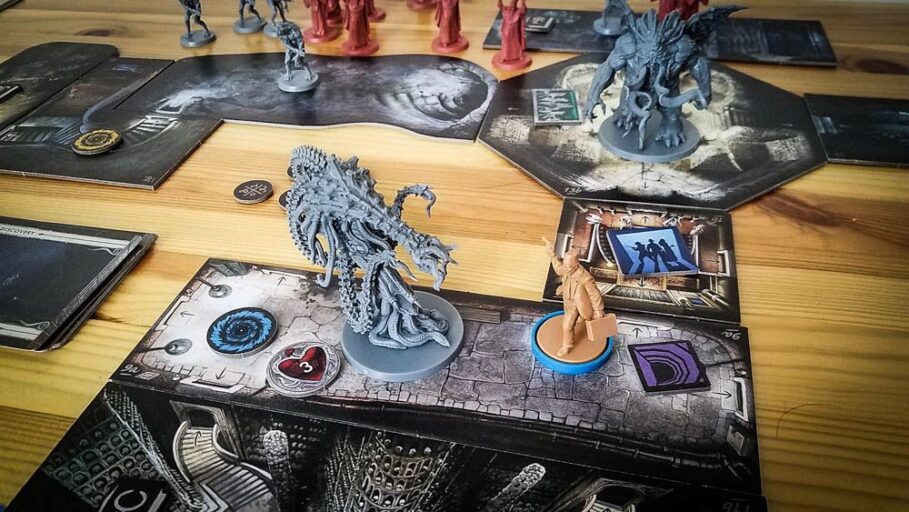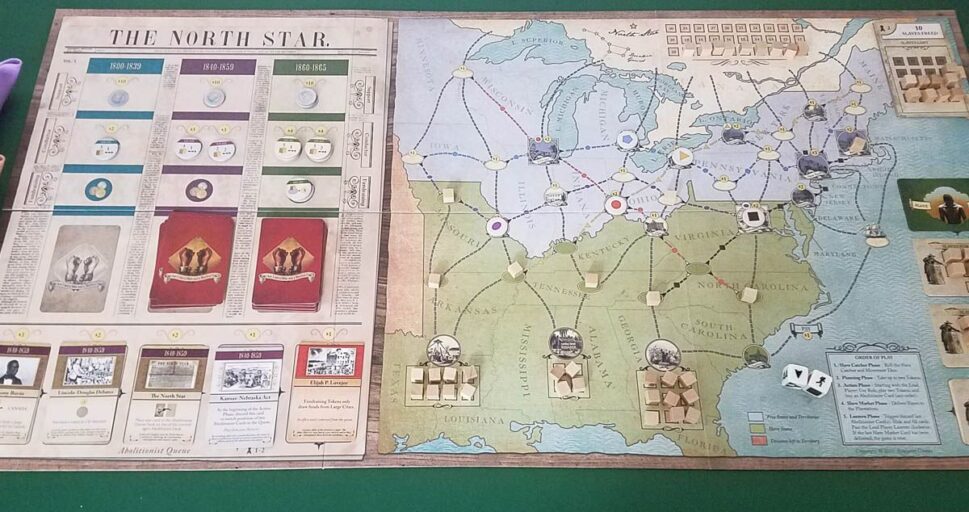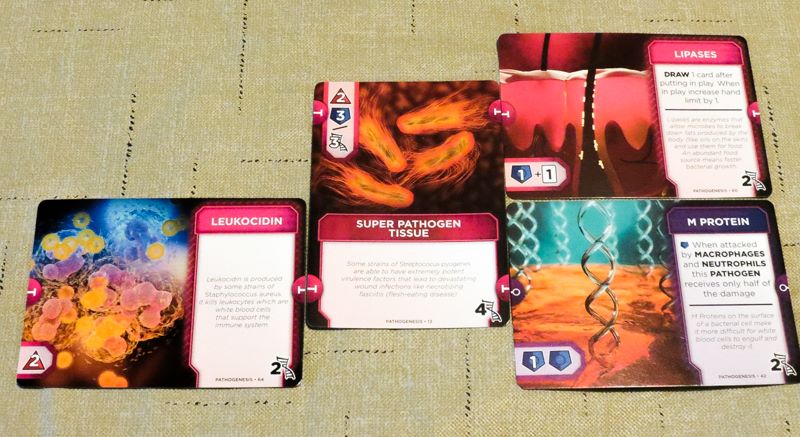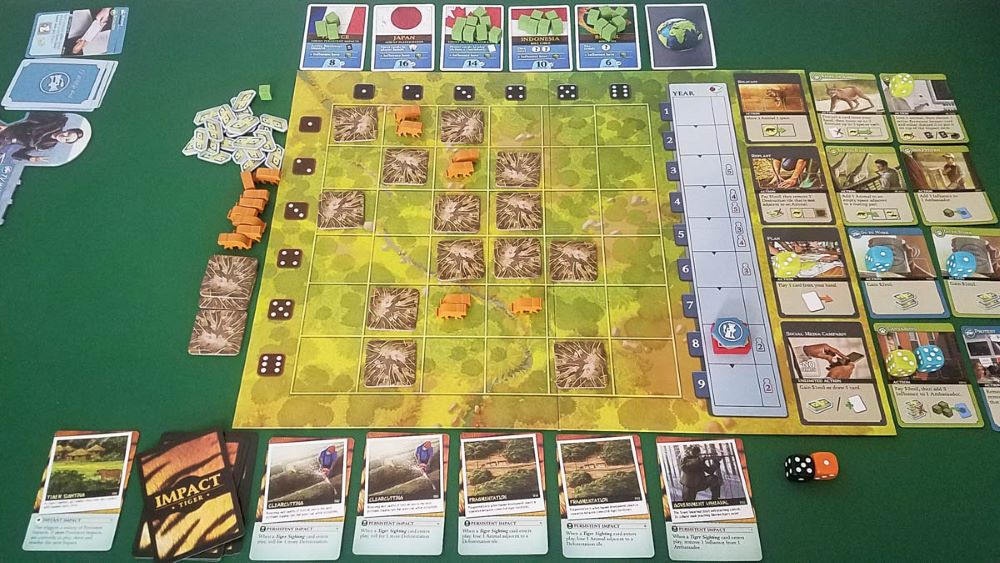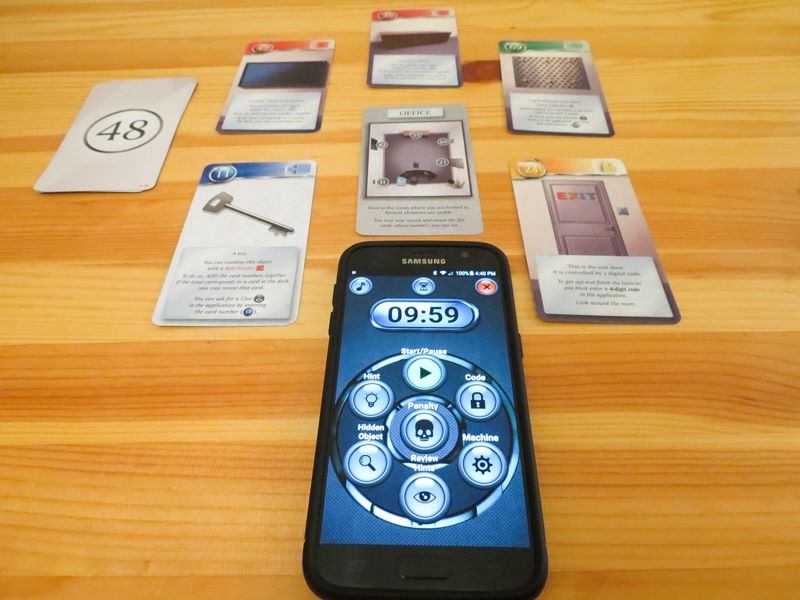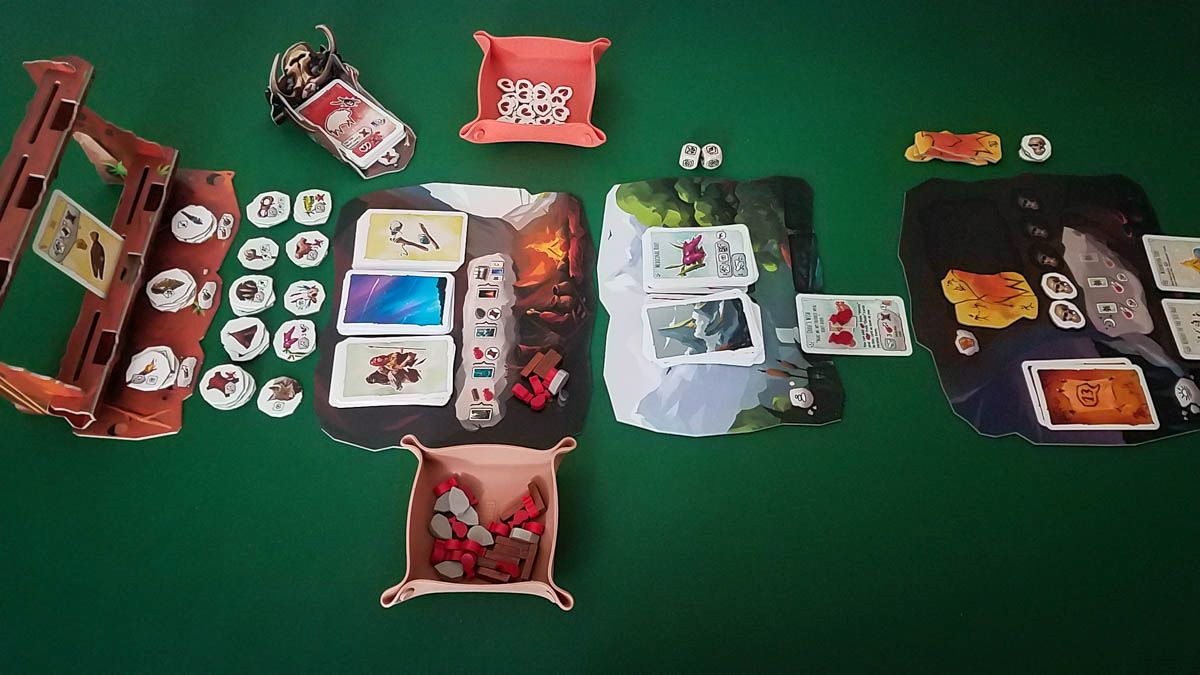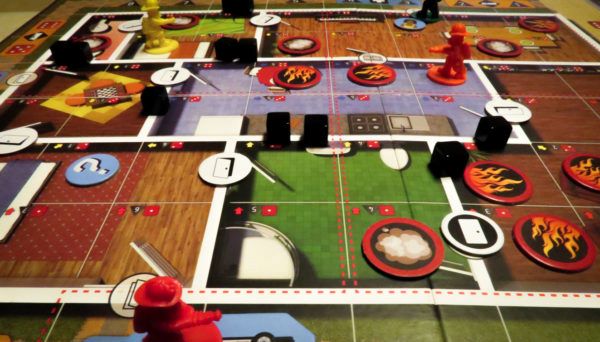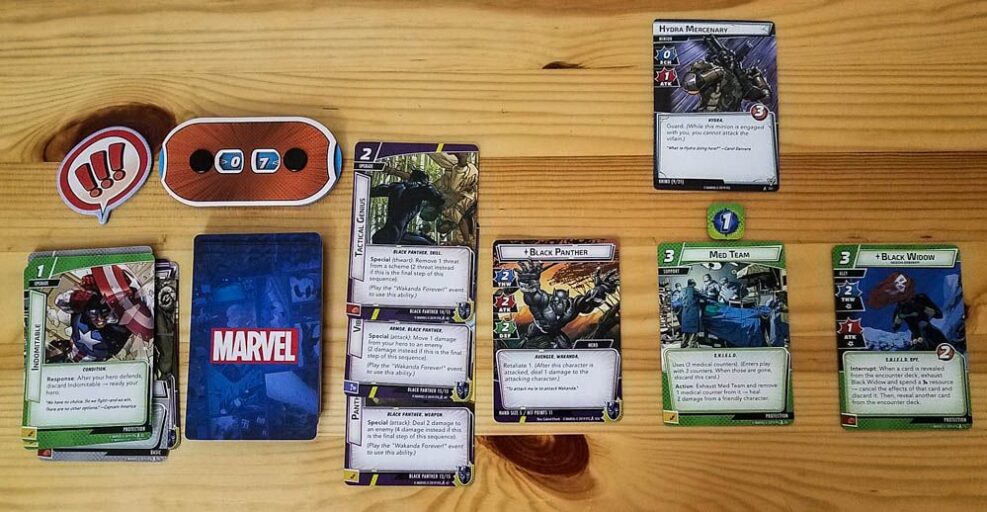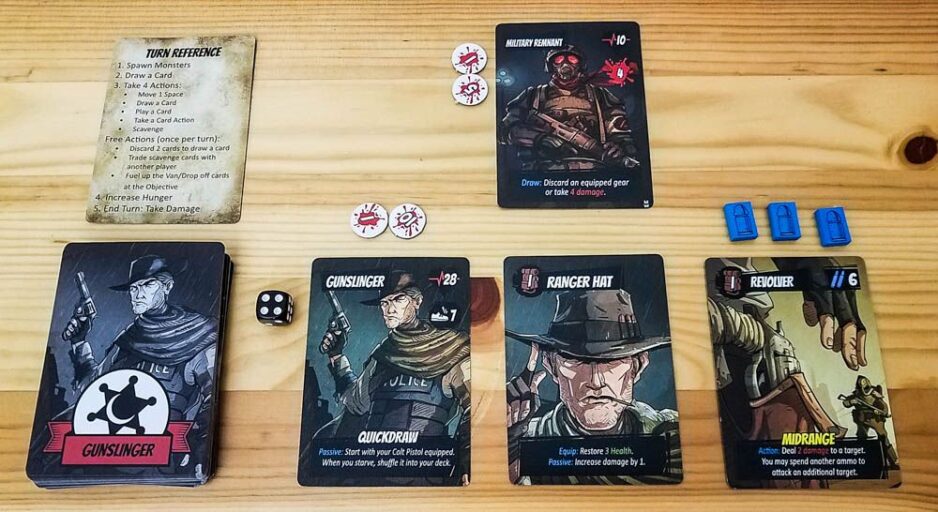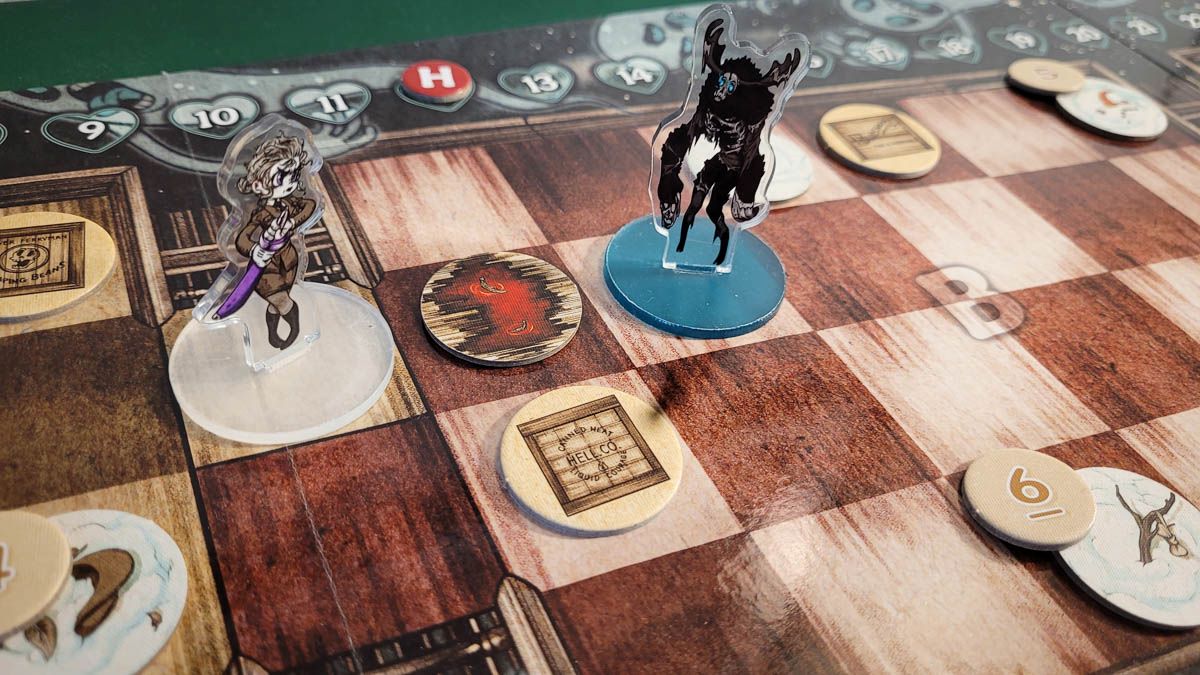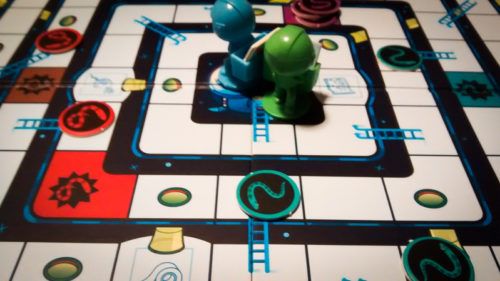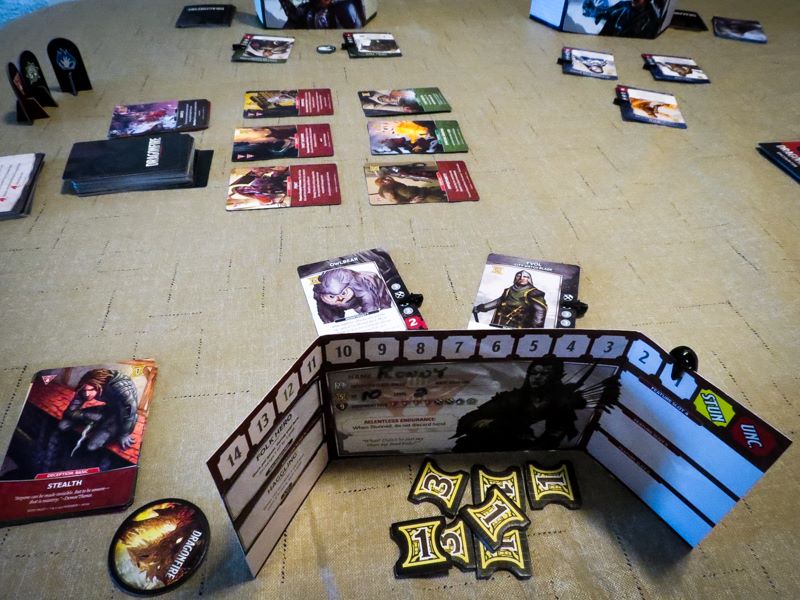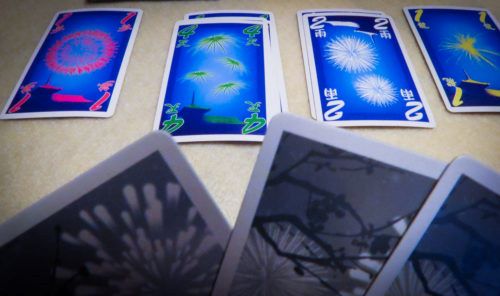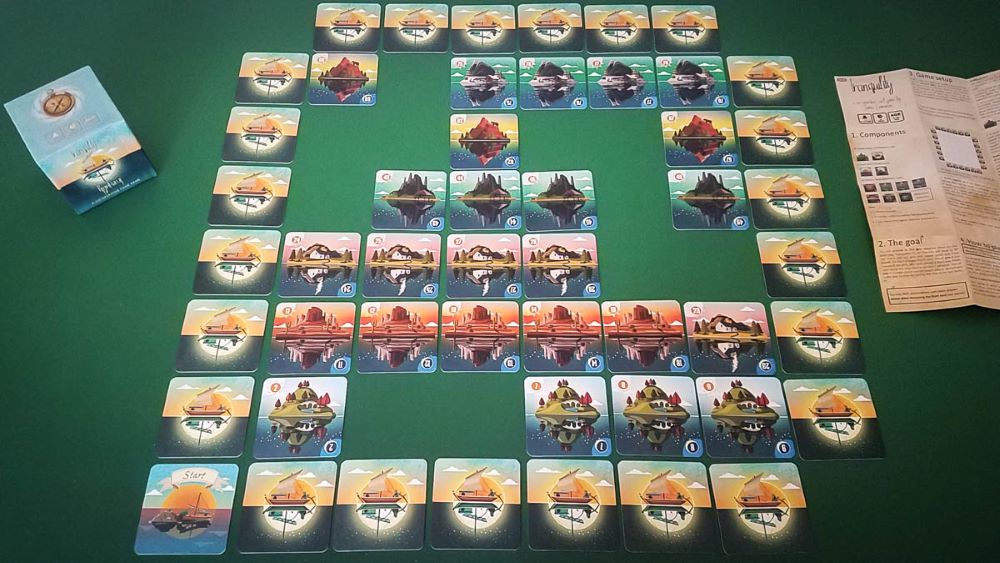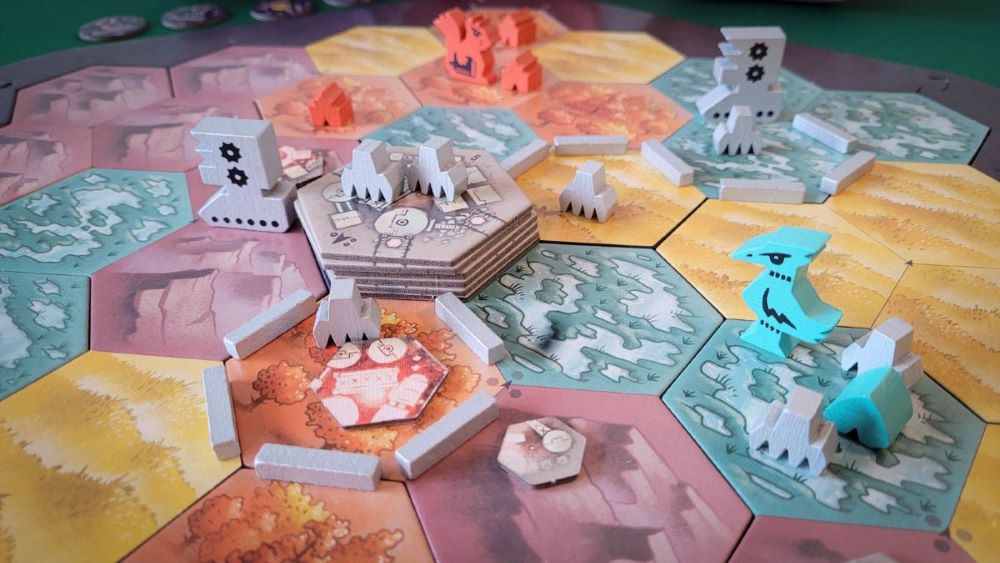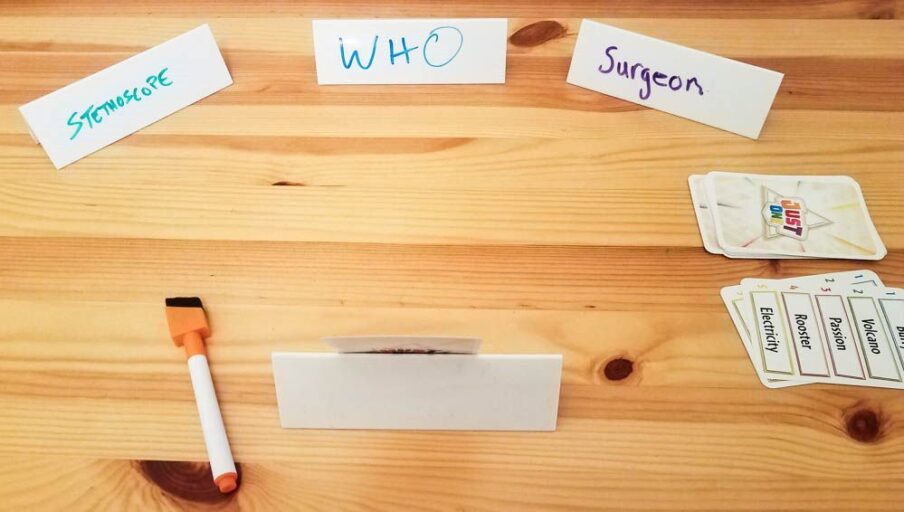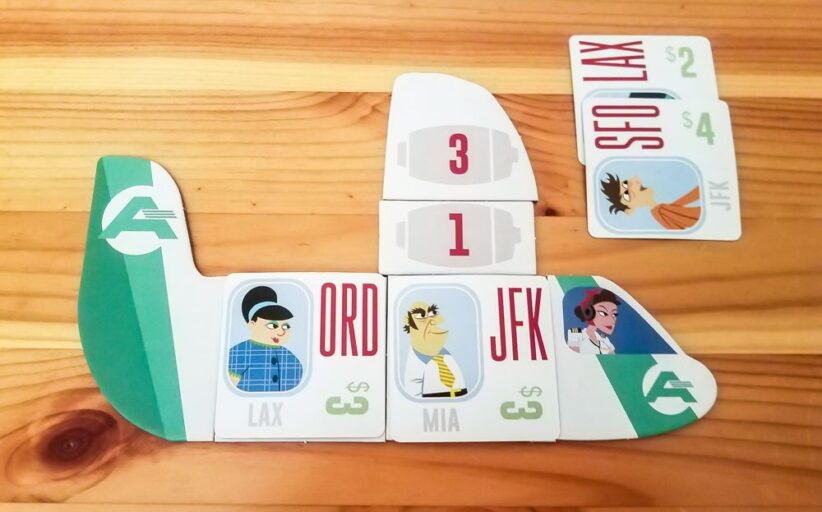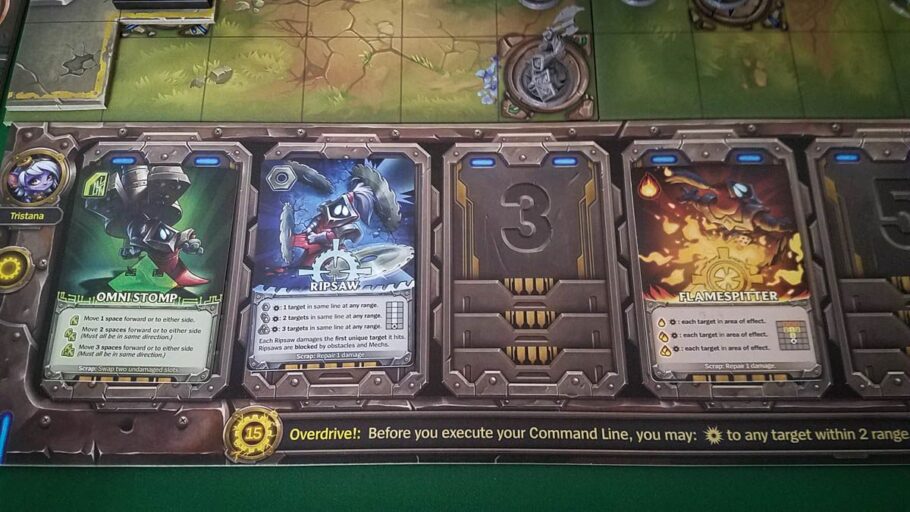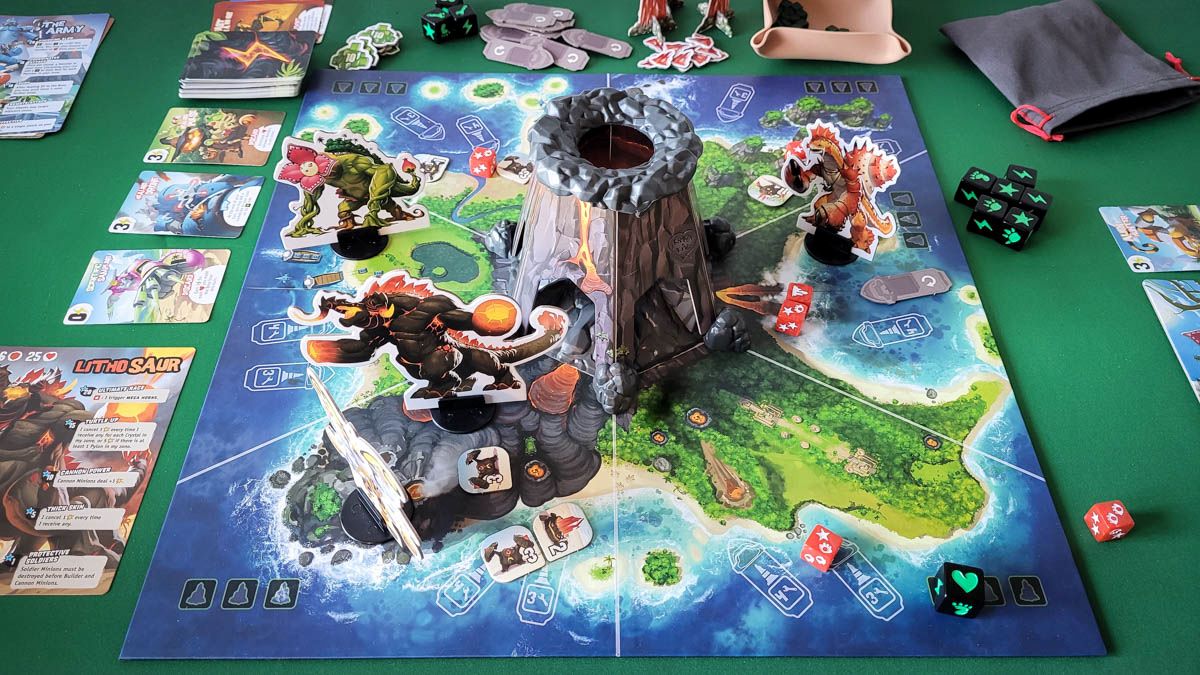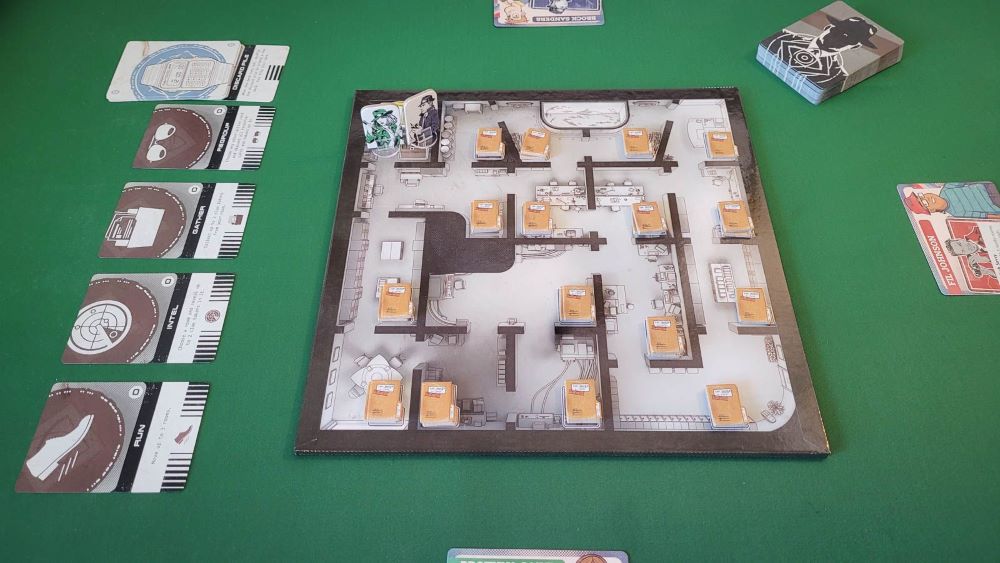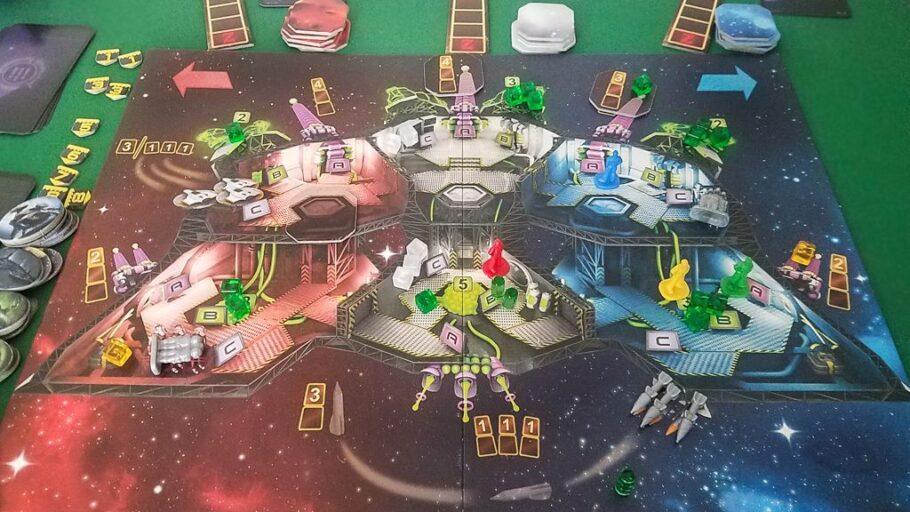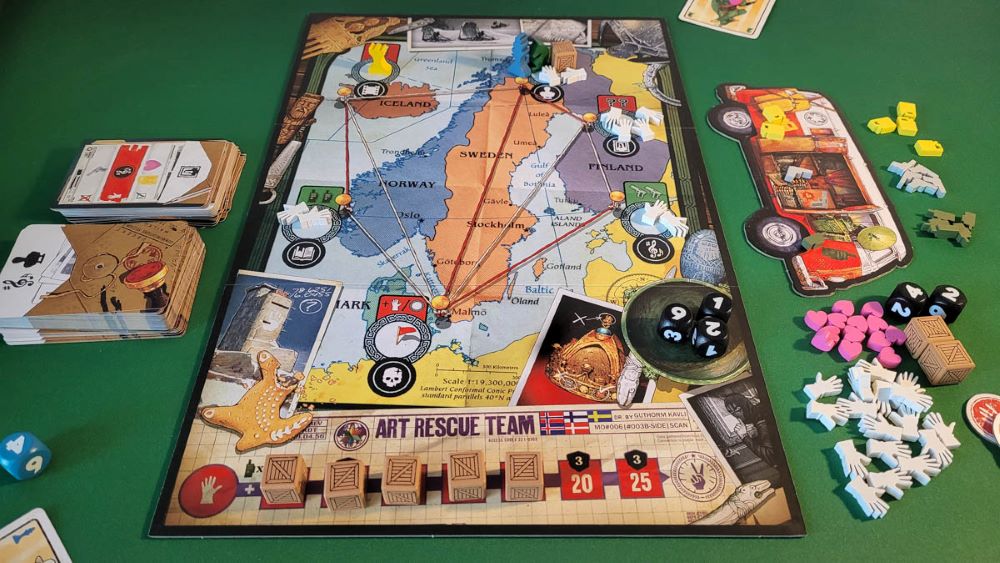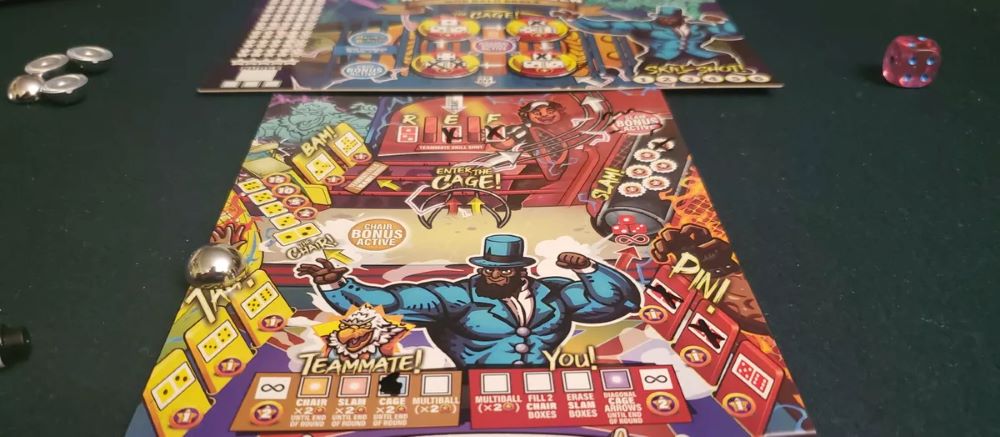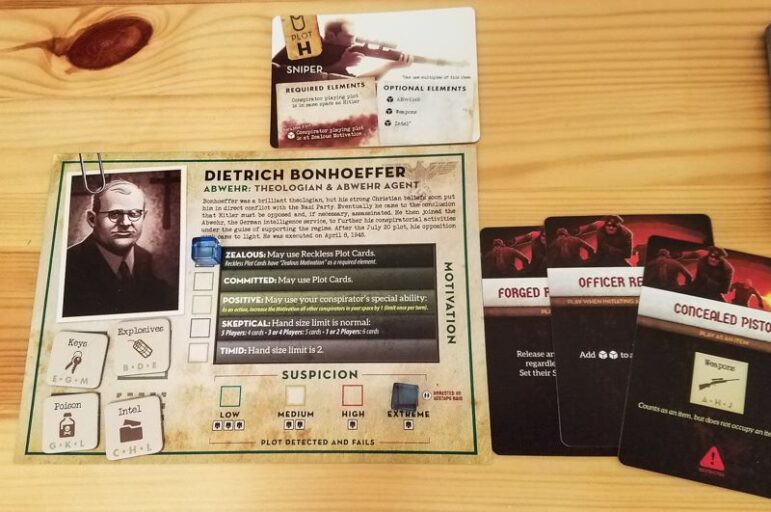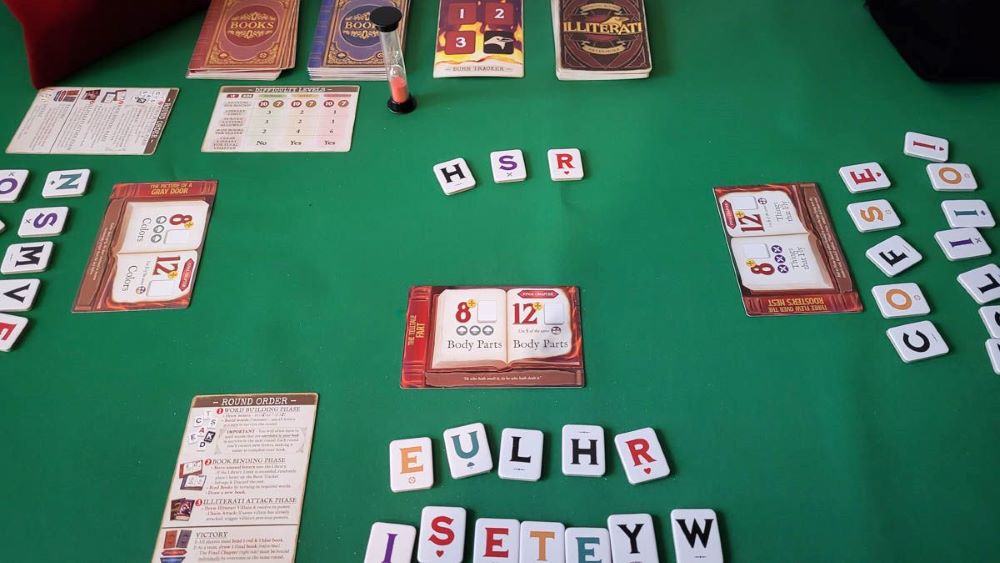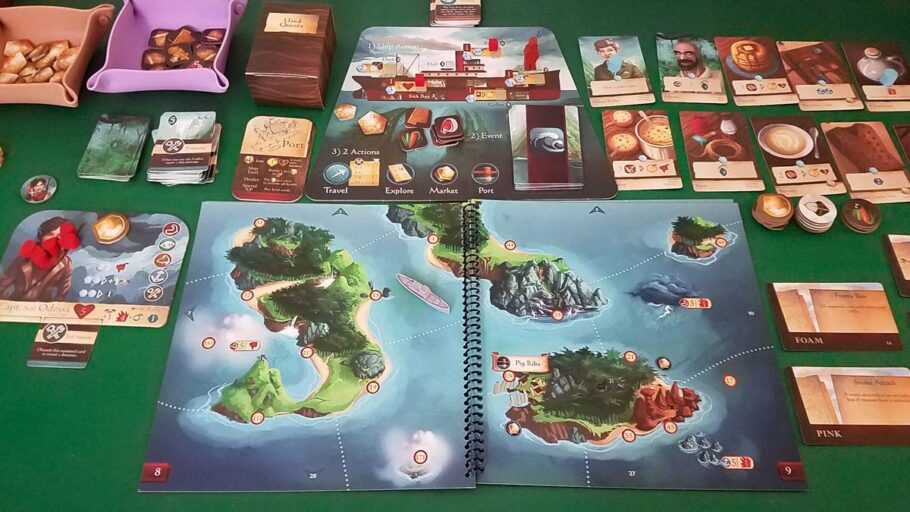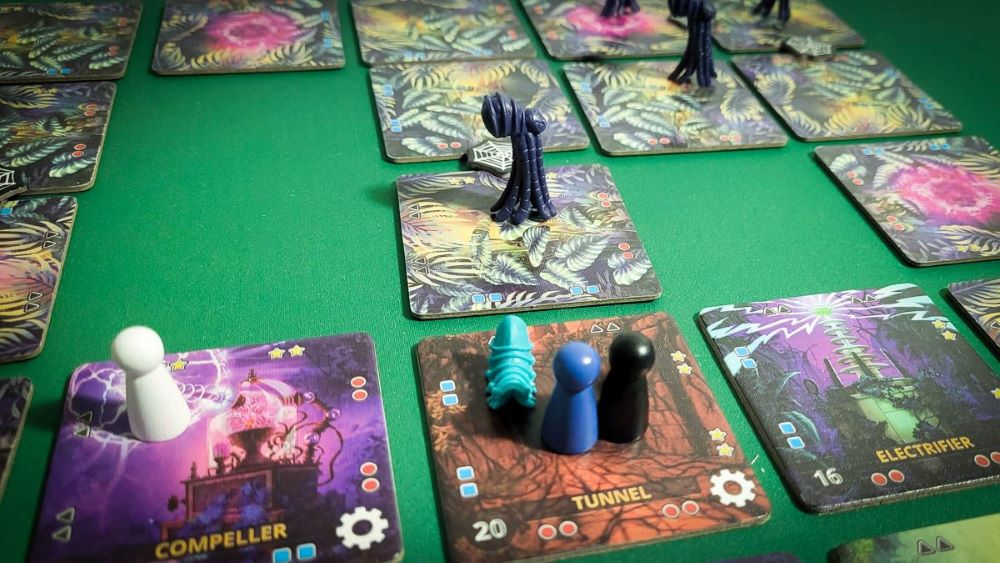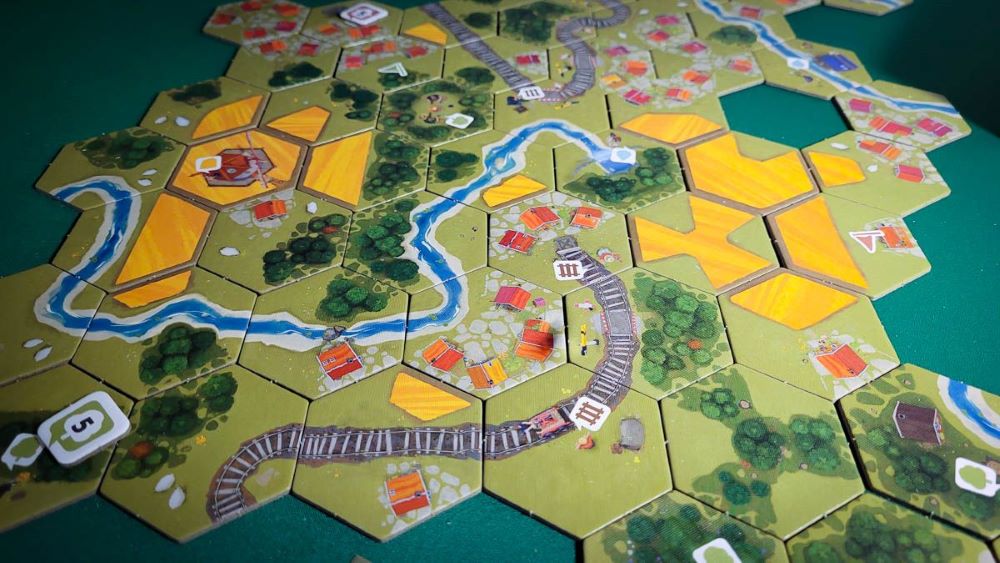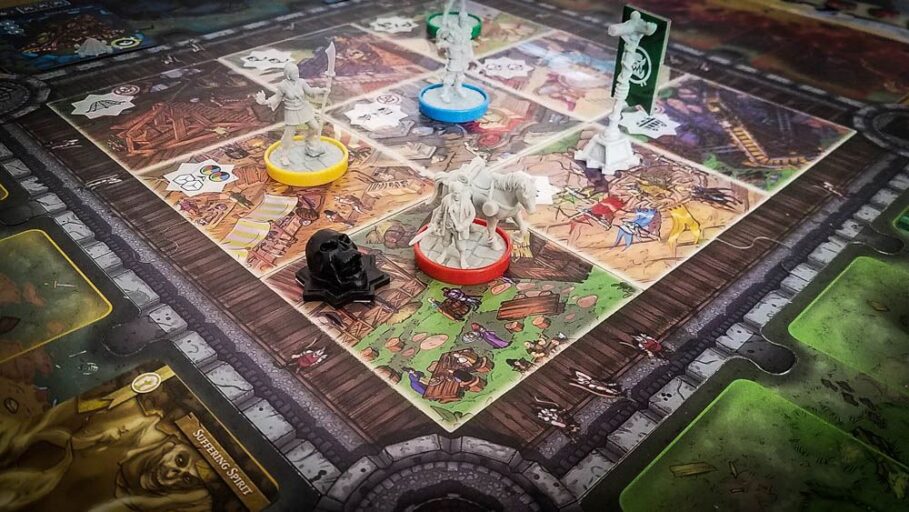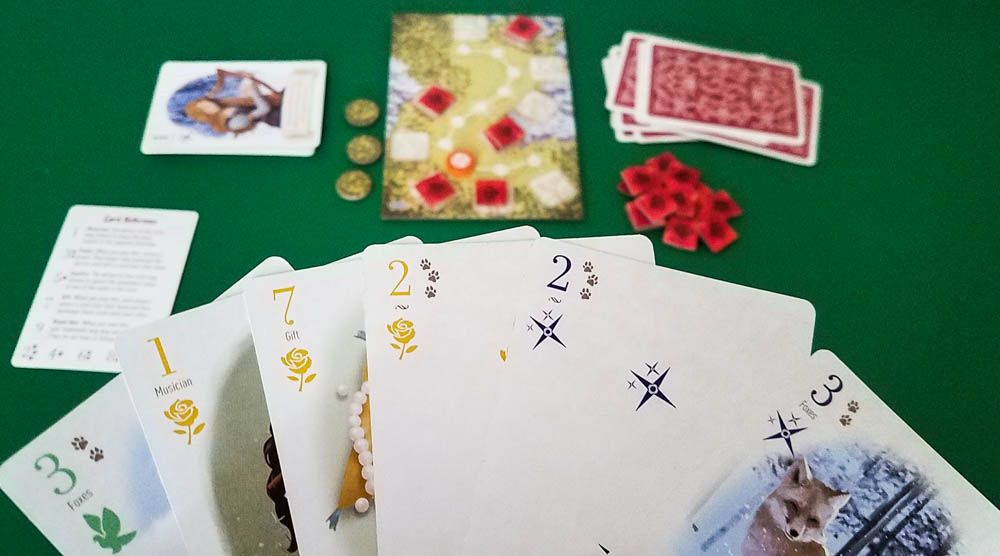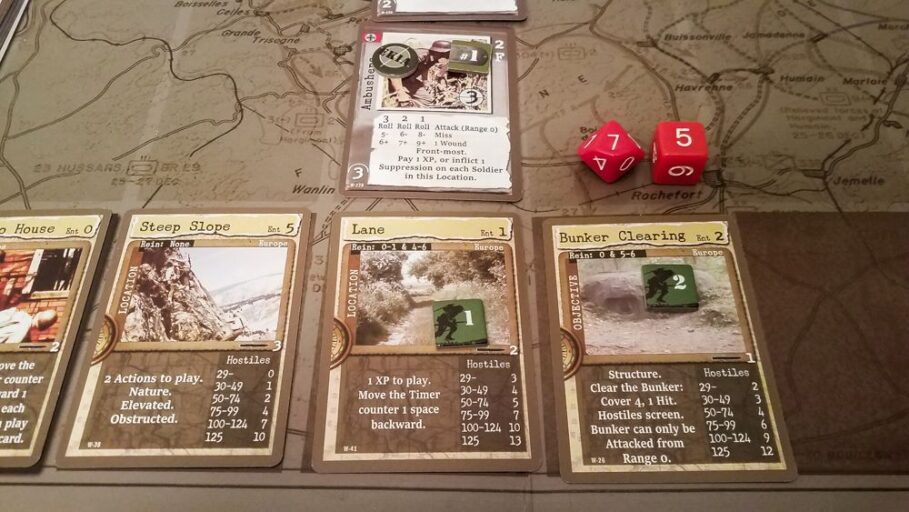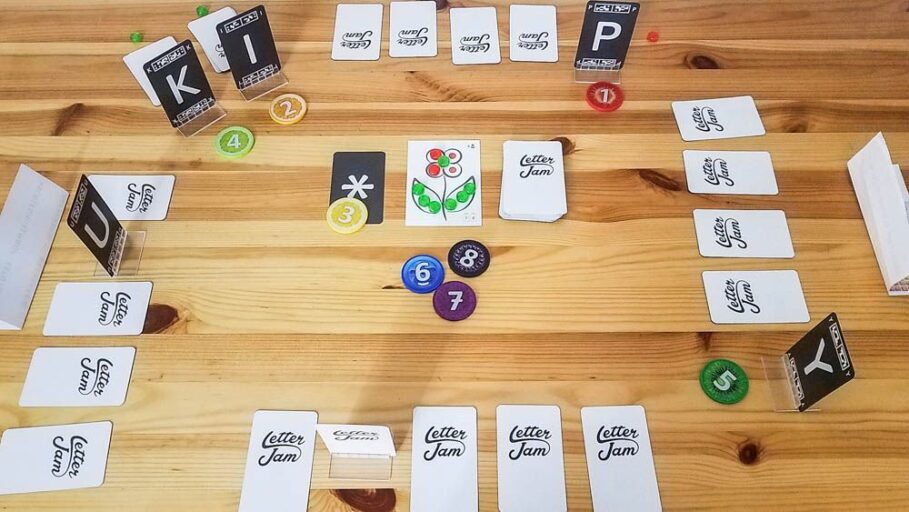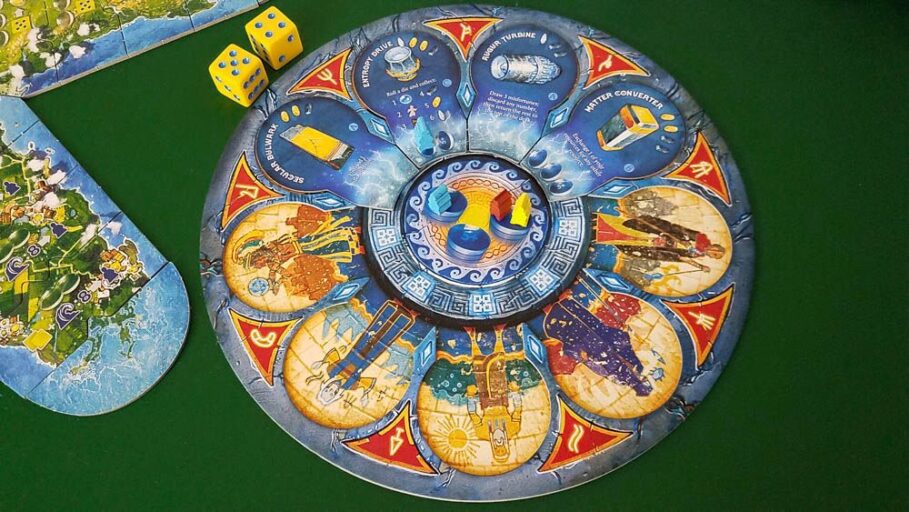Types of Board Games
When I was first getting into tabletop gaming, I was pretty confused by all of the different types of board games that were out there. It actually took me over a year to get a good grasp on the differences between all of the board game categories. I’m hoping this page makes learning the different board game types a much quicker process for others!
My ultimate goal with this guide is to help gamers know the types of games they’re getting into before they buy board games for their groups.
43 Types of Board Games
Rather than going through every type of board game, which would take me ages to do, I decided to include 43 of the most common types of board games you’ll run into. Keep in mind that a lot of board games–most, actually–fall under more than one board game category.
I’m focusing on cooperative board game types, but the majority are used in both competitive and co-op games.
I’m going to do the best I can to make each description make as much sense as possible. If you have a better understanding of each type’s meaning when you leave, I’ve done my job!
Table of Contents
Cooperative Games
It makes sense to start here! (Don’t worry, the rest of this list is in alphabetical order)
In cooperative board games, players are on the same team and they’re attempting to beat the game together. You can have different roles to play, but at the end of the game, you’ll either win or lose as a team.
Examples: Well, all of the board game reviews and board game rankings on this site cover cooperative board games!
See the Top 40 Cooperative Board Games
Abstract Strategy Games
Abstract strategy games are games with little or no theme. These games are known for having simple mechanisms, but they’re usually very tough to master because they’re skill-based (little or no luck involved).
Chess and Go are the most popular competitive abstract strategy games. There really aren’t a lot of abstract co-op games yet, which is a shame.
Example: Team Up!
Adventure Games
Adventure games focus on exploration, storytelling, and completing quests. You will usually have to journey through different landscapes, uncover mysteries, and overcome obstacles to achieve a shared goal.
Adventure games are quite immersive, often revolving around combat, puzzle-solving, and discovery.
Examples: Legends of Andor | The Lord of the Rings: Journeys in Middle-earth
See the Best Adventure Board Games
Area Control Games
In most area control games, you’re trying to have more power than your opponents in as many parts of the map as you can. In some area control games, you just have to have more pieces. In others, it’s the strength of each piece that matters.
You wouldn’t expect to find area control in co-op games, but in recent years some creative designers have found a way to make it work!
Examples: CO₂: Second Chance | Spirit Island
Campaign Games
Campaign games have you play through multiple missions or scenarios before you reach the end of the game. Your characters will usually get better as you move through the campaign, and the scenarios themselves get tougher.
Campaign games are typically much longer than other board games, often requiring many sessions to get through.
Examples: Adventure Tactics | Dawn of Peacemakers
City-Building Games
This is a pretty simple one! In city-building games, you attempt to build and manage a city. Players are typically responsible for developing different aspects of the city, such as infrastructure, resources, and population growth.
You’ll usually get points at the end of the game based on how well your city was built, with success determined by how efficiently you’ve managed resources and fulfilled objectives.
Examples: Cities: Skylines | Sprawlopolis
Deck Building Games
In most deck building games, you start with a basic deck of cards and you make your deck better as you play through the game. You usually do that by acquiring new cards and getting rid of some of those basic cards.
For example, you might start with a Weapon card that gives you a low amount of power, you later acquire a Weapon card that gives you more power, and then you use some game action to remove the weaker weapon from your deck to improve your odds of drawing that better weapon.
Examples: Aeon’s End | Harry Potter: Hogwarts Battle
See the Best Deck Building Games
Deduction Games
In deduction games, you have to solve problems by using the information you’ve gathered during the game.
Popular types of board games that can sometimes fall under the “Deduction” umbrella include detective games, murder mystery games, and puzzle games.
Examples: Sherlock Holmes Consulting Detective | Chronicles of Crime
See the Best Deduction Games
Dexterity Games
In dexterity games, you have to use physical skills to accomplish your goals. These games often have players standing up to perform the main actions of the game. At the very least, you’ll be moving more than you do while playing other types of board games.
Flicking games and balancing games are two of the main types of dexterity games.
Examples: Slide Quest | Menara
Dice Games
Dice games revolve around rolling dice to determine actions or outcomes. They add a random element to gameplay, where strategy often involves mitigating the risks associated with luck.
Dice games can range from light, family-friendly games to deeper strategic experiences, all driven by dice mechanics.
Examples: Elder Sign | Thanos Rising
[the_ad_group id=”1052″]
Dungeon Crawler Games
A dungeon crawler is a type of game that has players move through an environment (sometimes a dungeon, but not always), search for items, deal with a bunch of dangers, and ultimately fight some type of boss.
These games have a ton of exploration and there are usually many “dungeons” that you have to get through to beat them.
Examples: Cthulhu: Death May Die | D&D: Castle Ravenloft
See the Best Dungeon Crawlers
Economic Games
In economic games, you usually have to efficiently manage one or more resources to do well. You need to plan carefully to ensure resources are used wisely, balancing immediate needs with long-term goals.
Economic games are often engine-building games in which you need to make whatever produces a resource run smoother and quicker as the game moves along.
Examples: Freedom: The Underground Railroad | Debtzilla
Educational Games
Educational games teach players specific skills or knowledge while still being enjoyable. They are designed to blend learning with engaging mechanics, often focusing on subjects like science, history, or critical thinking.
These games are great for gamers of all ages who want to have fun while learning something new.
Examples: Pathogenesis | Freedom: The Underground Railroad
Environmental Games
Environmental games have themes centered around nature, conservation, and environmental issues. Players might work together to solve ecological problems, preserve resources, or protect wildlife.
These games often raise awareness about sustainability while challenging you to think strategically about the environment.
Examples: Endangered | Mini DiverCity
Escape Room Games
Escape room games bring the excitement of real-life escape rooms into board games. Players solve puzzles and clues within a set time limit to “escape” or complete a series of challenges.
These games typically require strong communication and problem-solving skills.
Exploration Games
Exploration games focus on discovering new areas, uncovering hidden items, and facing unknown challenges. These games sometimes involve large maps and require strategic movement to uncover mysteries.
Exploration is a key element of these games, as players often work together to advance and reach their objectives.
Examples: The 7th Continent | Paleo
Family Games
Family games are designed to be enjoyed by players of all ages, making them ideal for most game nights. They have simple rules and mechanics that encourage participation from everyone, regardless of skill level.
The combination of simple rules and fun themes is why family games are some of the most popular types of board games around.
Examples: Flash Point: Fire Rescue | Castle Panic
See the Best Board Games for Families list
Fighting Games
Fighting games are all about characters battling it out! These games could have a bunch of one-on-one fights or they could have a group of characters fighting one or more enemies.
I think it’s important to point out that there are a lot of games that have fighting mechanisms, but games in the “fighting games” genre are the ones that focus on fighting.
Examples: Unmatched Adventures: Tales to Amaze | Marvel Champions
Subscribe to the Co-op Board Games Newsletter
Hand Management Games
In hand management games, it’s all about using your cards in the most optimal way. Players must carefully consider their options, planning their moves based on the current state of the game and the cards in their hand.
These games often have hand-size restrictions, so knowing what to hold and what to play can be the difference between winning and losing.
Examples: Champions of Hara | Maximum Apocalypse
Horror Games
Horror games are designed to create tension, suspense, and maybe even fear. Players often face supernatural threats, terrifying monsters, or psychological horrors as they work together to survive.
The atmosphere is usually dark and eerie, making these games great for fans of spooky stories and adventures.
Examples: Vagrantsong | Resident Evil 2
See the Best Horror Board Games
Kids Games
Unlike board games for families, kids games are meant to be easy enough for younger kids to play. In many cases, kids can play them with or without adults.
Kids games usually have cute themes that children can enjoy. They also teach kids how to think strategically and, in the case of cooperative kids games, to work together.
Examples: Mole Rats in Space | Stuffed Fables
See the Best Board Games for Kids
Legacy Games
Legacy games evolve over multiple sessions, with players permanently altering the game board, components, or rules as they progress. Each game session impacts future sessions, making the experience highly immersive and unique.
Legacy games often feature a campaign structure, where the story unfolds as players make decisions that shape their world.
Examples: Pandemic Legacy | Dragonfire
Limited Communication Games
Limited communication games limit what you can say to the other players at the table in different ways.
For example, in some co-op limited communication games, you try to figure out what cards your teammates have by paying attention to the other cards they’ve played.
Memory Games
Memory games challenge you to recall information from earlier in the game or match hidden elements. Remembering what has been revealed is often key to winning.
Memory games are great for improving cognitive skills and usually require careful attention to detail, so they can work for just about any group.
Examples: Tranquility | Pavlov’s Dogs
Modular Games
Modular games give you a flexible and customizable experience through a board or components that can be arranged in multiple ways.
The setup can vary between sessions, which is why these games usually have very high replay value.
Examples: Defenders of the Wild | Marvel United
Party Games
Party games are light board games that usually have a lot of player interaction.
Board games in the party game genre often have short play times and can be played by five or more players, making them perfect for people who want to play a quick and fun game with their friends without having to learn and teach a lot of rules.
Examples: Just One | Cross Clues
See the Best Party Board Games
Pick-up and Deliver Games
Pick-up and deliver games usually have you doing what the name implies: picking things up and then delivering them somewhere else.
You’ll usually have to travel to pick stuff up, and you’ll often get rewarded in some way every time you make a delivery.
Examples: Horrified | Now Boarding
[the_ad_group id=”1052″]
Programming Games
In programming games, everyone programs their movements and actions, and then you see how everything plays out.
In most of these games you don’t know what the other players have programmed, so you can’t be sure that what you planned will come to fruition.
Examples: Quirky Circuits | Mechs vs. Minions
Push Your Luck Games
Push your luck games, or press your luck games, have players make decisions that could lead to bigger rewards—or sometimes total failure. The key element in these games is risk management, as you have to decide whether to keep going and take on more risk or play it safe with what you’ve already earned.
Push your luck games tend to have a lot of suspense and excitement, making them great for groups who enjoy high-stakes moments.
Examples: King of Monster Island | Roll for Adventure
Puzzle Games
Puzzle games revolve around solving complex problems, either individually or as a group. These games involve strategic thinking and planning to overcome obstacles and achieve the objective.
Puzzle-solving is at the core of the experience, making these games ideal for players who enjoy critical thinking challenges.
Examples: The Initiative | Escape Tales: Low Memory
See the Best Puzzle Board Games
Real-Time Games
Real-time games create a sense of urgency as you must make decisions and take actions within a set time limit. These games have fast-paced gameplay, requiring quick thinking and rapid responses to changing situations.
Most real-time games use digital timers or sand timers to track time. These games can be super chaotic!
Examples: 5-Minute Dungeon | Space Alert
See the Best Real-Time Board Games
Resource Management Games
In resource management games, you try to gather and allocate resources efficiently to achieve victory. Managing limited resources and optimizing their use is crucial to success.
These games often involve economic systems, where careful planning is necessary to get wins.
Examples: The A.R.T. Project | Palm Island
Roll-and-Write Games
Roll-and-write games involve rolling dice and then marking results on a score sheet. These games tend to be fast-paced and require quick decision-making as you strategize your next move based on your rolls.
Roll-and-writes’ simplicity makes them easy to learn, yet they often offer deep strategic possibilities.
Examples: Super-Skill Pinball: Ramp it Up! | Mission Control: Critical Orbit
Set Collection Games
In set collection games, putting groups of cards together in sets is a big part of how you succeed.
A classic example of a competitive set collection game is Rummy, which has players attempting to combine sets of cards based on their rank or suit.
Examples: Pandemic | Black Orchestra
Simultaneous Action Selection Games
In simultaneous action selection games, all players secretly choose their actions and reveal them at the same time. This adds a layer of strategy, as you have to anticipate what others are planning and adjust your own actions accordingly.
Simultaneous action selection games are typically fast-paced and require quick thinking.
Examples: Illiterati | Dragon Keepers
Storytelling Games
Storytelling games, also sometimes called narrative games or storybook games, usually have you follow along in a storybook as you play.
Often you can change how the story plays out based on how you answer questions in a book.
Examples: Sleeping Gods | Aftermath
See the Best Storytelling Board Games
Survival Games
Survival games focus on enduring harsh environments, limited resources, or constant threats. Players work together to ensure their survival, often in the face of overwhelming odds.
These games usually feature tense decision-making, where every move could be the difference between life and death.
Examples: This War of Mine | Forbidden Jungle
Tile Placement Games
Tile placement games are all about strategically placing tiles to build landscapes, cities, or other structures. How and where you place tiles usually determines points or future moves.
Tile placement games often require good spatial awareness and careful planning.
Examples: Race to the Raft | Dorfromantik
Tower Defense Games
Tower defense games typically have you defend one location from onrushing enemies.
You usually need to set up defenses around your “tower,” and fight any enemies that get close. As the game progresses, enemies get stronger, requiring you to upgrade your characters or the tower itself.
Examples: Last Bastion | Pavlov’s House
Trick-Taking Games
Trick-taking games are card games where the goal is usually to win as many tricks as possible. Each trick typically involves players playing one card each, and the player who plays the highest card “wins” that trick.
Understanding the order of play, managing your hand, and deciding when to play strong cards versus weaker ones are huge parts of trick-taking games.
Examples: The Crew | Fox in the Forest Duet
War Games
War games allow you to reenact past battles or fight in fictional wars. These games are usually thematic since the designers wanted to be as accurate as possible when creating them.
Most board games in the war games genre are competitive, but more publishers have released co-op war games in recent years.
Examples: D-Day Dice | Warfighter WWII
Word Games
Word games are all about spelling, unscrambling, defining, or finding links between words. These games challenge players’ vocabulary, word knowledge, and sometimes quick thinking as they form words or make connections in creative ways.
If you’ve played Scrabble, you’ve played a word game!
Examples: Letter Jam | Codenames Duet
See the Best Word Board Games
Worker Placement Games
In worker placement games, you send your characters (workers) to perform actions for you throughout the game.
There are usually a bunch of actions available in worker placement games, but you only have so many workers to send out. These games often only allow one worker to be in an action space each turn, which further limits what players can do.
Examples: Robinson Crusoe | Atlantis Rising
Final Verdict
Understanding the order of play, managing your hand, and deciding when to play strong cards versus weaker ones are huge parts of trick-taking games. For players who enjoy these mechanics, there are plenty of ways to keep playing outside of game night. You can even try digital versions online alongside other classics like Solitaire on sites like Solitaire Bliss, which offers a wide range of trick-taking games, making it easy to practice strategy, compete with friends, or just enjoy a relaxing round at your own pace.
Puzzle-solving is at the core of the experience, making these games ideal for players who enjoy critical thinking challenges. One of the most popular examples is Sudoku, a game that mixes logic with numbers in a way that is simple to learn but tough to master. It’s an excellent way to stay sharp and entertained between bigger board games.
Thanks for taking a look at our Types of Board Games guide!
Be sure to check out our Best Co-op Board Games list and other board game rankings.
If our site has been valuable to you, please consider supporting us at Ko-fi.
[Sassy_Social_Share title=”Share this page”]
Subscribe to the Co-op Board Games Newsletter
